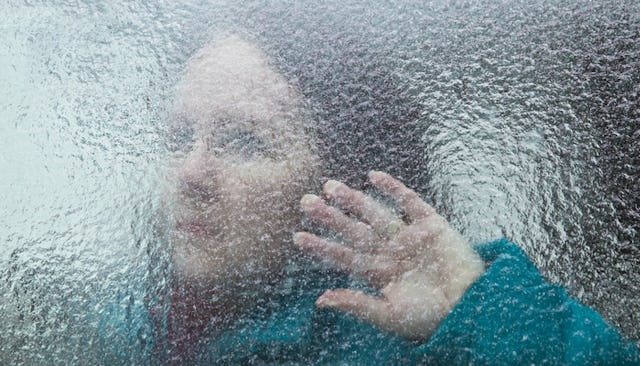The Crippling Reality Of Anxiety

Most people don’t think twice about going to the post office, or returning an item that doesn’t fit right, or picking up the phone and ordering a pizza or some takeout. But these seemingly simple acts, which sound so humdrum to most people, require monumental effort for me.
The mere thought of doing any one of them sends me into a spiral of internal panic, and I have to psych myself up before I can ever consider doing them. Therefore, I have a bunch of unreturned clothes in my closet, a Domino’s order saved only on their website, and I never send anyone anything that can’t fit in my mailbox at home (sorry for the crappy gifts, everyone). In fact, some friends and I are taking turns reading a book; when one of us finishes, we send it to the next person. I just finished it yesterday, and last night I literally woke up at 2 a.m. in agony over the thought of delivering it to the post office.
It’s ridiculous. I know it’s ridiculous. I can’t even pinpoint exactly what I’m afraid of — judgment, maybe? My logical brain always attempts to inject a dose of common sense, like, “Come on, now. This is no big deal.” But it’s quickly overridden, crippled by whatever it is that washes over me, causing my heart to thump like a fish flopping on a sandbar, breath arrested in my lungs. It’s social anxiety, and it’s the burdensome weight I’ve had to carry since it first reared its ugly head during my senior year of high school — invisible but oppressive.
I don’t understand it, and neither does most anyone else, which is why only a select handful of people know my secret. (Until now, I mean. If you need me, I’ll be hiding under my covers.) I have become pretty good over the years at coming up with my own coping mechanisms — acting, for example, like those unworn shirts with the tags are just hanging in my closet because I “keep forgetting” to return them. And to the casual observer, I’m a normally functioning — even extroverted — person. In some situations, I’m perfectly fine. In fact, I’ve been a group fitness instructor at various gyms for nearly six years now, where my students know me as bubbly and energetic.
They would probably never recognize me on my worst days, the ones where all my motivation drains out through this invisible leak in a place I can’t find, and I can barely get out of my bed. The days when I glance outside and just a trip to the mailbox at the end of the driveway seems daunting, let alone leaving the house and interacting not just with the general public, but with friends, with family, with anyone I don’t live with.
The days when an unexpected knock at the door will send me crouching wild-eyed behind the couch pretending I’m not home, chest heaving in a manner more suited to an animal being hunted by a dangerous predator than a grown-ass woman hiding from the dude just trying to sell lawn care services. Then logic regains its usual control, and I berate myself endlessly: Why are you so irrational, so stupid? Regular people aren’t like this, and if you had your shit together, you wouldn’t be either. What’s wrong with you?
Would I say those things to anyone else? Never. I don’t see anyone else’s struggles in the same way that I see my own. I know it’s a mental illness, and I have compassion for everyone who suffers — except for myself. When it’s someone else, it’s an affliction that they’re unable to help. When it’s me, it’s a weakness, a confirmation that I’ll never be good enough. I hate myself for having a problem beyond my control. Filtered through the distorted lens of self-loathing that this monster has created, I cannot see my own issues objectively.
I cope — well enough, anyway. I have to. I have a family. I have a household. I have jobs, plural. I know isolating myself doesn’t help matters, so on the worst days, I drag my screaming psyche up by the proverbial bootstraps, doing what I can to operate as closely to normal as possible, one foot in front of the other, only through quicksand.
I mustered up the courage to go to a therapist once. But I couldn’t bring myself to go back because she didn’t make eye contact when she spoke to me, and I worried it was because she thought I was weird.
Welcome to my life. Imagine what it would be like if I could actually live it like a normal person.